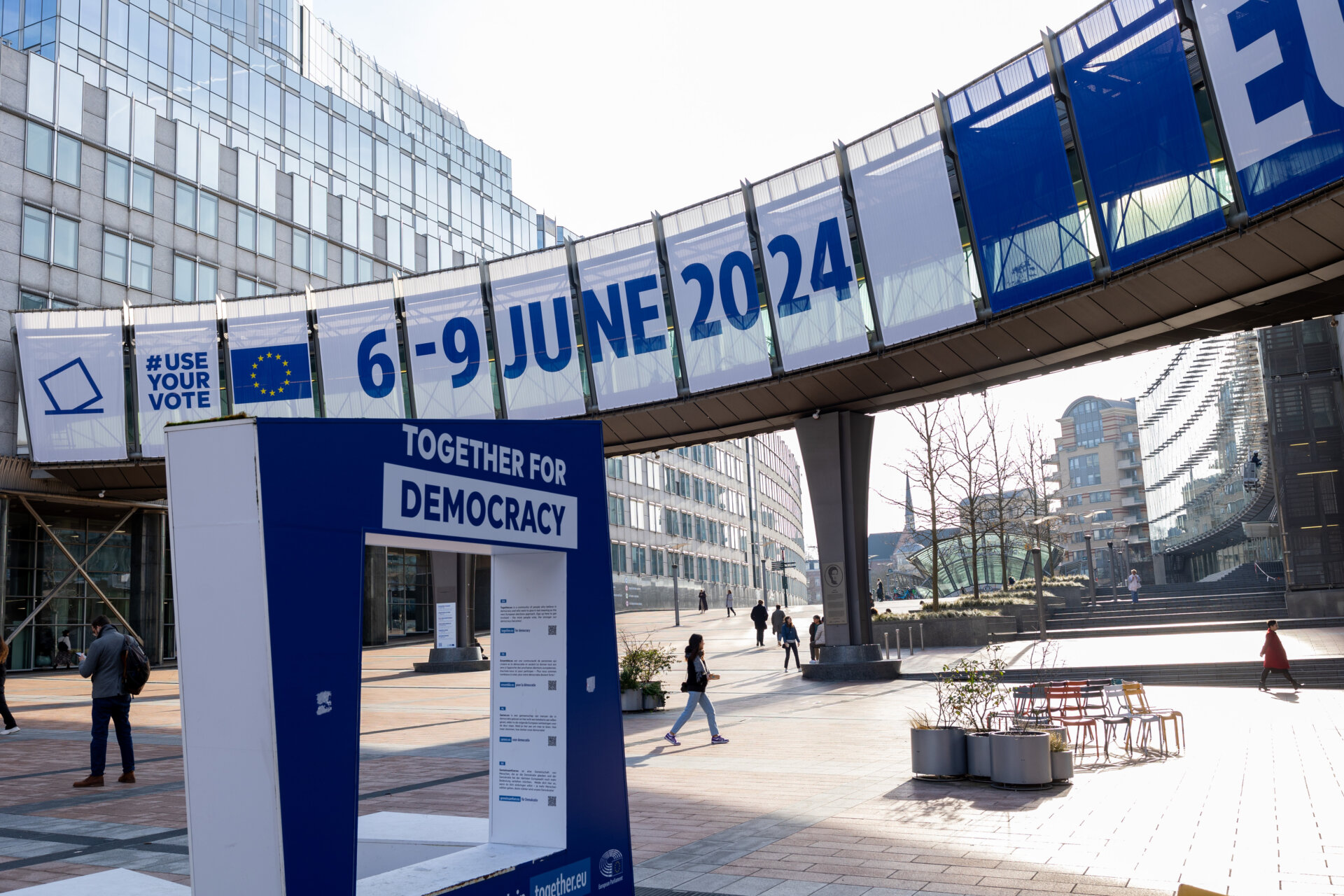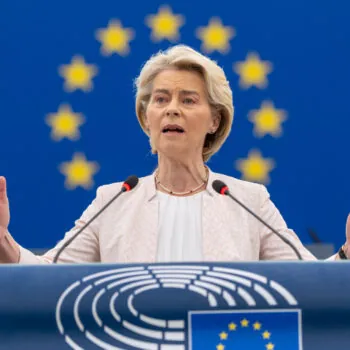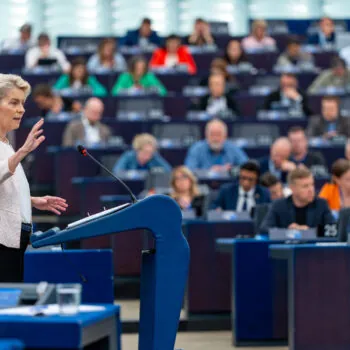In just 50 days, Europeans will head to the polls to elect a new European Parliament. Most political parties’ manifestos indicate an appetite for further EU-level climate action, with competitiveness and social agendas as supporting avenues. However, investment and security debates carry both advantages and potential risks for the climate transition.
E3G has reviewed the manifestos of ALDE, ECR, ECPM, EDP, EFA, EGP, EPP, PEL, PES, REN, and Volt, while monitoring the public statements of ID, which have not published manifestos. The analysis shows what is top of mind for each political family. While parties address all priorities in their manifestos, their focus level differs.
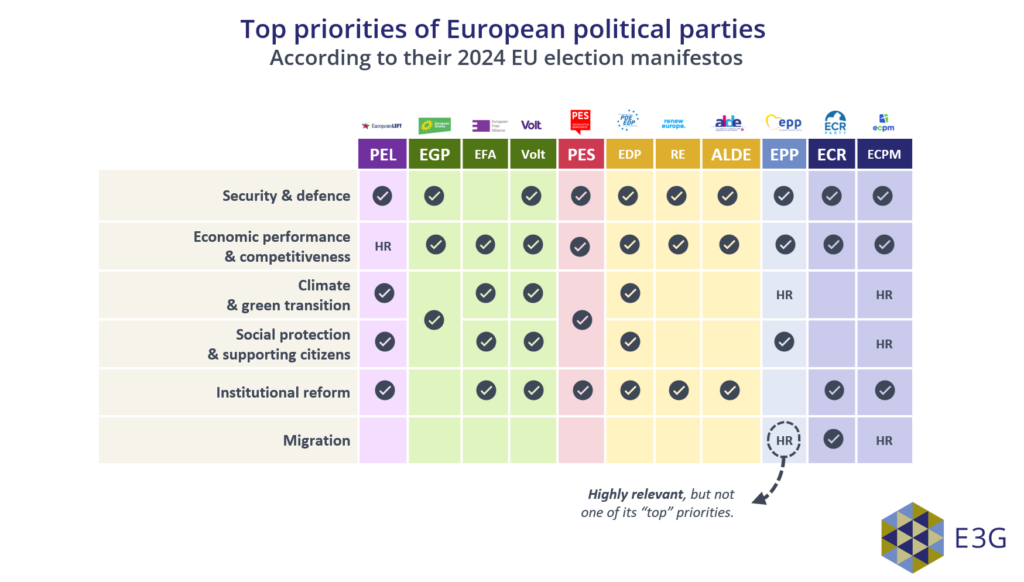
Security and defence. Security is a top priority across divides, heightened by the wars at the EU’s borders and geopolitical instability. Security is mainly approached from a military perspective, with numerous calls for strengthened EU defence capabilities. However, some parties extend the scope to economic, energy and social security. Yet, there is a significant lack of attention to the increasing security risks posed by climate change.
Economic performance and competitiveness. Mainstream parties express concern over the EU’s economic performance and advocate for an industrial strategy that boosts competitiveness and reduces external dependencies. Proposed solutions include investments, workforce reskilling and reducing bureaucracy, with a focus on clean technologies. The two main parties view climate action as a key ingredient and stress the importance of leadership in the twin – green and digital – transitions.
Supporting people and social policy. Across political spectrums, there is a growing focus on supporting citizens. Unlike in the EU leaders’ Strategic Agenda discussions, most manifestos want enhanced social protection for citizens, particularly to ensure a fair green transition for farmers, households, and workers. Manifestos diverge on whether to achieve this through additional EU-level social policies or by reinforcing existing tools.
Climate change. Climate action emerges as the main priority of leftist parties and remains relevant for the centre-right. Most manifestos agree on further developing the EU Green Deal in its industrial and social components and facilitating its implementation by governments and businesses. All mainstream parties highlight green investments, circular economy, and sustainable agriculture as key areas for action. While they acknowledge the administrative and economic challenges faced by farmers; they all aim to ensure the sector’s transition to sustainability.
Institutional reforms. Some parties prioritise redefining the EU’s functioning, particularly in anticipation of welcoming new member countries like Ukraine. However, the parties’ positions reveal a divide between the federalist aspirations of pro-European forces and the hard right’s emphasis on national sovereignty.
Immigration. While not a top priority, immigration remains a salient issue for hard and far-right parties, with the centre-right also considering it among potential threats to European security.
Resilient commitment to EU climate action
Despite recent cases of backtracking and far-right opposition, there remains a significant commitment to EU climate action in election manifestos. This is reinforced by the prominence of climate change and the green transition in the parties’ vision for economic competitiveness and social support. However, pushes for short-term competitiveness, regulatory cutbacks and reticence to advance EU social policies risk undermining the prospects of a fair and effective transition.
Similarly, parties’ investment and security views are double-edged swords, potentially catalysing or hindering the climate transition. While manifestos spotlight the green transition as a key post-election investment target, differing views on spending capacities and competing investment priorities exist. Boosting EU defence capabilities would be expensive, yet the manifestos’ scattered references to economic resilience, social stability, energy independence and climate safety offer fertile ground for a broader notion of security that avoids unnecessary trade-offs.
Securing the green transition in the EU’s future priorities
The EU elections will shape the political demands set by a new parliamentary majority for endorsing the future EU executive. Therefore, the priorities of European parties, together with the Strategic Agenda of heads of state and government, will shape the EU’s direction of travel for the 2024-2029 term.
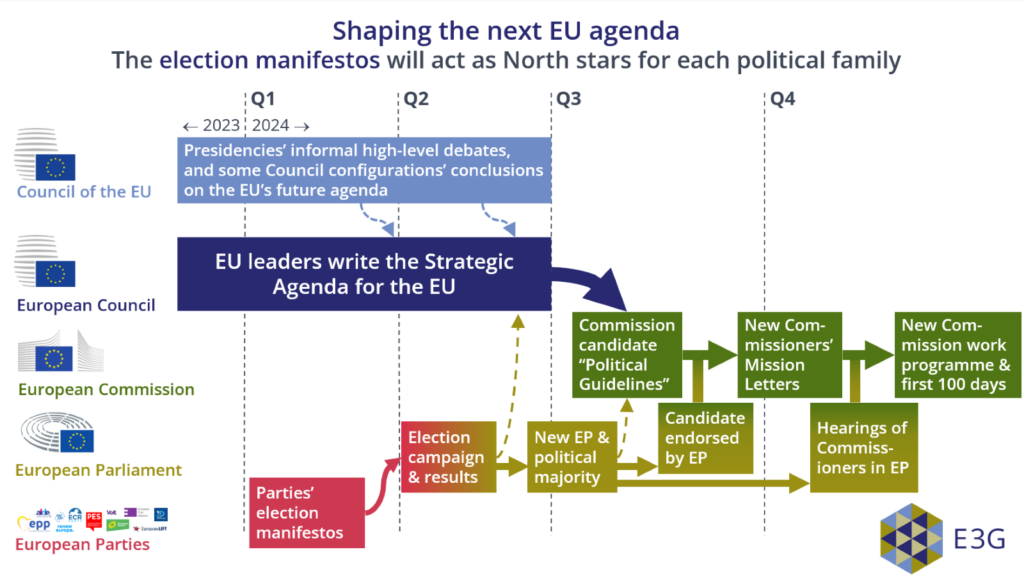
As the European Parliament prepares to represent the voices of its constituents, there is significant political and public support to continue advancing a fair transition to climate neutrality in harmony with other pressing priorities. This is possible if centrist parties stay the course and limit the influence of extremist forces. In doing so, Europe will continue to pursue widely shared aspirations and secure its future prosperity.

